For Better, for Worse
"We laugh when people say marriage is hard work. Cancer is hard work; our marriage is easy."
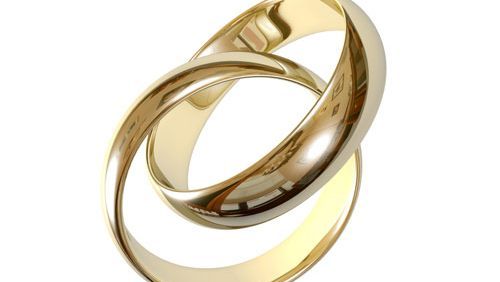
It's 3 a.m. and I'm pacing back and forth in the waiting room of a New York City hospital, trying to decide whether to let a surgeon cut out my husband's tongue, where an aggressive cancerous tumor has taken residence. Brian has already been in surgery all night when the doctor comes to inform me of our options: Remove the tongue, which will likely prolong his life but render him mute, or leave in the tongue, saving his speech but ignoring more of the cancer that will eventually kill him. Whether to hasten my husband's death or take away his ability to speak was hardly the kind of choice I imagined I'd ever have to make.
If the decision were for myself, I'd choose the former, but I'm not sure the same is true for Brian, who knows the life story of every nurse, neighbor, and UPS man he's ever met. I recently found him in the living room, embroiled in a deeply personal conversation with the cable guy, who had seen two close relatives die of cancer.
The doctor says he can wait one minute for my answer.
When I fell in love with Brian seven years ago, he was vibrant and sharp and creative, a handsome, lanky 43-year-old Englishman who looked great in a suit, his dark hair often tucked under an old-fashioned fedora. In fact, he'd had some major illnesses before we met: childhood-onset diabetes and resulting kidney and pancreas transplants. But he never seemed like a sick person.
We became friends in 2001 when, as an actress, I joined a theater company where he was a director. One day, I brought him to help me coach basketball for the Special Olympics. Within minutes, he was off in a corner teaching some younger students how to dribble. On our way home, he said, "When can we come back?" — and meant it. We started going twice a week, and as Brian fell in love with my athletes, I fell in love with him.
In 2003, Brian noticed a pea-sized lump in his neck. Doctors found squamous cell carcinoma in the base of his tongue, which had metastasized in his lymph nodes. It was serious, but the doctors said the prognosis was favorable and talked about curing it. After surgery and extensive radiation treatments, Brian's biopsies started coming back negative. It looked like he was going to be fine, and we got married. But in 2005, the cancer returned, only much stronger. Doctors gave him a year to live — but they also admitted they'd never seen a patient like Brian before. One nicknamed him The Bionic Man; another told us that anyone else would've been dead by now. They added more radiation and at least four rounds of chemo, and stopped giving us prognoses. By 2007, the cancer had become a subdermal disease, nearly impossible for him to overcome. Two years later, I have to decide whether to cut out his tongue.
I tell the surgeon to leave in Brian's tongue and remove whatever he can of the cancer around it. In all, the surgery takes nearly 18 hours. A week later, Brian begins to talk again and tells me I made the right call. I've never been so relieved. But they've removed the lymph nodes from his neck, so his face basically has no drainage system; that plus puffiness from radiation and chemo eventually causes Brian's head to swell into a sort of moon face. His eyes are reduced to slits, engulfed by bulging pockets of flesh. When we watch a movie, he pries them open with his fingers or uses his wedding ring to prop up an eyelid. When we walk down the street, some people offer a "God bless you"; others are so startled by his appearance that they jump out of the way. It surprises people to see a normal-looking woman holding Brian's hand or kissing him. We're very affectionate, and we still have sex. Underneath his strange, new appearance, he's still the same Brian.
Stay In The Know
Get exclusive access to fashion and beauty trends, hot-off-the-press celebrity news, and more.
But a few months after the surgery, his speech starts to deteriorate. By October, he can barely whisper. To "talk," Brian types into a text-to-speech program on his iPod. A native of Dorset, England, he even chooses a British accent for the computer so it will sound more like his voice used to (it's still a far cry). He's changed in all of the obvious ways you identify your partner — he looks different, sounds different. But it is gradual, over a six-month span, so it never startles me the way it would have if it had happened overnight.
When we got married, our friends and family gave us shovels and trowels and gift certificates to seed catalogs. We spent a few months planting our "wedding garden," filling the backyard with roses, climbing clematis vines, daffodils. We were so happy out there, sweating through the humid New York summer, making something together we thought we'd watch grow through the years.
Since Brian got sick, he still tries to work in the garden when he's up to it, moving slowly between the vines and leaning on his walking stick. On a good day he brings me a stray rose he managed to cut, or maybe we'll take a walk around the block. Recently, he agreed to come with me to Bed, Bath & Beyond to buy five or six pillows to prop him up on at night, in hopes it would help with the swelling. When we got home, Brian sat on the couch with one of our four cats and checked e-mail. I went to the bedroom to put linens on the new pillows. When I finished, I called to Brian, "Prince, your royal bed is ready!" A few minutes later, he slowly walked up the stairs with a dish towel around his shoulders as a cloak, a wooden spoon as his scepter, and a tea cozy for a crown, and we fell onto the bed laughing.
On bad days, though, Brian's in pain. He'll spend a week in bed. We keep pillboxes with compartments for morning, noon, evening, and bedtime medications that treat his condition, stave off infections, and manage his pain. One of the drugs causes him to get light-headed, and a few weeks ago, Brian stood up quickly and fainted, falling down our spiral staircase and tearing his rotator cuff — which meant a trip to the hospital. Luckily I'm in seminary school full time, which means I have a flexible schedule. Sometimes we spend the entire day in bed together, just zoning out to BBC America. Sometimes, I lie with my head in his lap for hours, sobbing.
Cancer doesn't make it easier to love someone. I change his bandages and remind him to take his medication. I make him high-calorie smoothies of Carnation Instant Breakfast, peanut butter, oil, and ice cream. Once, during an MRI, he was fussing like a 2-year-old; I snapped at him and he snapped back at me. I felt guilty for the rest of the day. Still, we rarely fight. We laugh when people say that marriage is hard work. Cancer is hard work; our marriage is easy. But taking care of him can leave me without much time to take care of myself — I don't go for checkups with my own doctors and I quit going to the gym. Still, there is nothing — nothing — I'd rather be doing than being there with him.
Lately, the doctor has been warning us about the way things may end for Brian: with a "carotid blowout." Because of untreatable ulcers on his neck from the chemo, the skin could wear so thin that the carotid artery may burst, causing him to bleed to death. The idea is terrifying to me, but Brian doesn't seem as scared. Rather than languishing in a bed, the doctor describes this kind of death as quick and fairly painless. We never considered assisted suicide — Brian was all about life, and living.
Even in his current state, Brian likes to have some kind of new creative project going on. He sprung a new plan on me recently when I came home from class: to build a 16-foot mahogany kayak. "I watched Must Love Dogs on TV," Brian whispered. "John Cusack built these beautiful wooden boats." Over the next few months, as Brian lost his speech, our friends came over to help him shape the wood, to plane and measure and polish. We now have a watertight 16-foot kayak sitting in our living room. Our hope is that, come spring, Brian will be well enough to put it in the river.
Postscript: Brian Nelson died on November 22, 2009. A friend of the family sent out an e-mail, the only practical way to get word to the 1,200 friends in his iPhone address book.
-
 My 56-Year-Old Mother and I Can’t Get Enough of This Buttery Cream Bronzer
My 56-Year-Old Mother and I Can’t Get Enough of This Buttery Cream BronzerSarah Creal’s newest release is a hit for dry skin and minimalist makeup.
By Samantha Holender Published
-
 These Chic On-Sale Finds Will Define My Rich-Looking Summer Wardrobe
These Chic On-Sale Finds Will Define My Rich-Looking Summer WardrobeI'm getting ahead with these under-$200 tank tops, staple denim, and breezy dresses.
By Brooke Knappenberger Published
-
 Will 'Pulse' Return for Season 2 After Its Finale Left Us With Heart Palpitations?
Will 'Pulse' Return for Season 2 After Its Finale Left Us With Heart Palpitations?We need to know about the future of the central will-they-won't-they STAT.
By Quinci LeGardye Published
-
 30 Female-Friendly Porn Websites for Any Mood
30 Female-Friendly Porn Websites for Any MoodFeatures All the best websites, right this way.
By Kayleigh Roberts Published
-
 The 82 Best Cheap Date Ideas for Couples on a Budget
The 82 Best Cheap Date Ideas for Couples on a Budget"Love don't cost a thing." —J.Lo
By The Editors Last updated
-
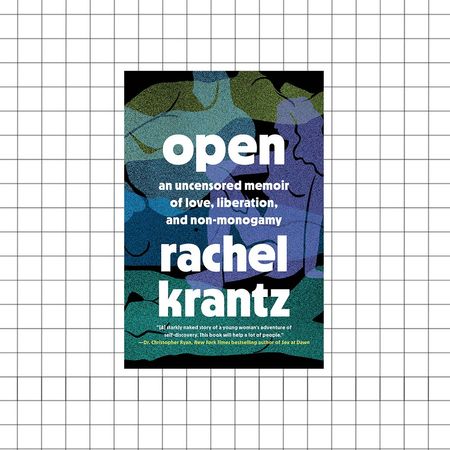 Diary of a Non-Monogamist
Diary of a Non-MonogamistRachel Krantz, author of the new book 'Open,' shares the ups and downs of her journey into the world of open relationships.
By Abigail Pesta Published
-
 COVID Forced My Polyamorous Marriage to Become Monogamous
COVID Forced My Polyamorous Marriage to Become MonogamousFor Melanie LaForce, pandemic-induced social distancing guidelines meant she could no longer see men outside of her marriage. But monogamy didn't just change her relationship with her husband—it changed her relationship with herself.
By Melanie LaForce Published
-
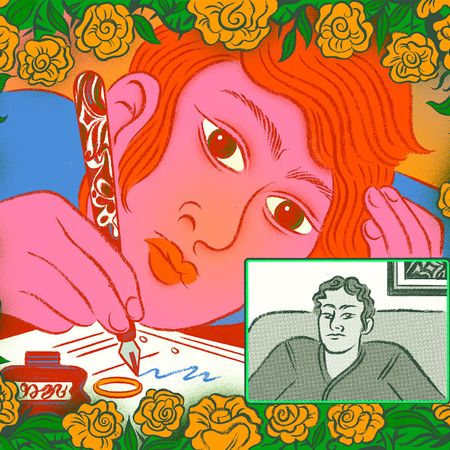 COVID Uncoupling
COVID UncouplingHow the pandemic has mutated our most personal disunions.
By Gretchen Voss Published
-
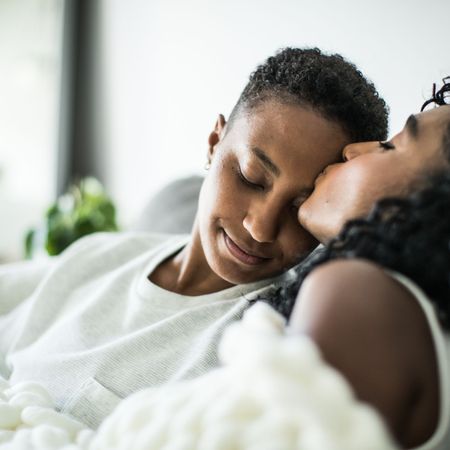 16 At-Home Date Ideas When You're Stuck Indoors
16 At-Home Date Ideas When You're Stuck IndoorsFeatures Staying in doesn't have to be boring.
By Katherine J. Igoe Published
-
 Long Distance Relationship Gift Ideas for Couples Who've Made It This Far
Long Distance Relationship Gift Ideas for Couples Who've Made It This FarAlexa, play "A Thousand Miles."
By Jaimie Potters Published
-
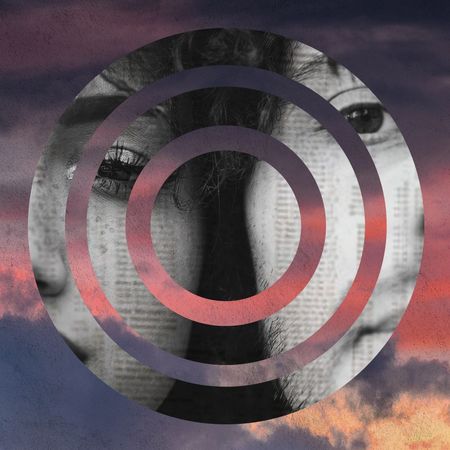 15 Couples on How 2020 Rocked Their Relationship
15 Couples on How 2020 Rocked Their RelationshipFeatures Couples confessed to Marie Claire how this year's many multi-stressors tested the limits of their love.
By Sherry Amatenstein, LCSW Published